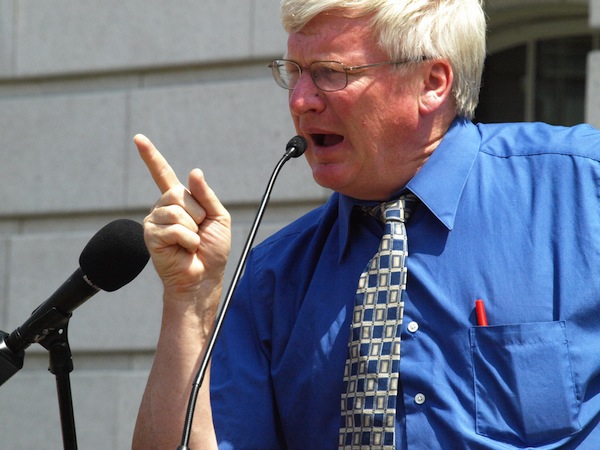Wisconsin Bill Proposes Less Campaign Disclosure, Limits Transparency

When evidence surfaced last month in New Jersey that one of the most influential engineering firms in the state, Birdsall, had been making questionable campaign contributions through their employees by reimbursing employees for checks made under the public disclosure amount, the state moved to pass a campaign finance law that would decrease the disclosure amount.
Most states require citizens to report a donation of $50 or $100, while six already require all donations to be reported.
While the measure failed in the Garden State, largely to protect the two upcoming fall elections: the special election to replace Senator Frank Latuenberg for U.S. Senate and the gubernatorial contest, Wisconsin already fits into the broader national trend.
Wisconsin requires that any donation over $100 must report their employer -- particularly for state legislative elections.
However, this will all change if state Senator Glenn Grothman (R-West Bend) passes his most recently sponsored legislation, LRB 0837/2. Grothman wants to increase the disclosure requirement to $300 — the same requirements under New Jersey law when Birdsall committed its abuses.
Grothman argues that increasing the limits would protect companies from being bullied because of the individual political actions their employees make. The senator, a staunch conservative, also seeks to correct what he sees as overly liberal legislation that enacted this law as a way to limit corporate influence.
Around the country though, there are a number of groups that are working counter to Grothman’s legislative initiatives. There appears to be more citizen groups working for further transparency and -- especially in the aftermath of the Citizens United ruling -- are looking to keep elections honest and open.
For example, the Campaign Disclosure Project grades all states on campaign disclosure laws, electronic filing programs, disclosure content accessibility, and online contextual and technical usability.
Similarly, the Wisconsin Democracy Campaign is a watchdog group that is nonpartisan and working to provide online access to public disclosures.
These efforts work directly counter to Grothman who last year sponsored a similar bill which failed to move through the Legislature.
While Lisa Subeck of United Wisconsin calls the bill a “shameful proposal” that would limit transparency in the state, it is uncertain even if many Republicans would support the legislation due to last year’s failure to get a vote on the proposal.
What is certain, however, is that the legislation appears to be working against the national trend which is increasingly seeing more bills before legislatures which could provide more transparency and openness rather than the alternative route.




